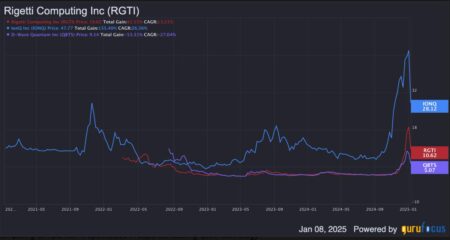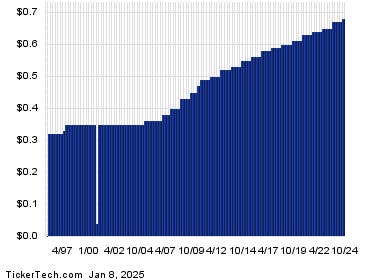Week in Review
- Asian equities were mostly lower in the first full week of trading of 2025 though Korea and Mainland China managed gains while Pakistan and Hong Kong underperformed.
- The December Caixin Services PMI, released Monday, accelerated month over month to 52.2 from November’s 51.5 and beat expectations of 51.4.
- The US Department of Defense (DOD) added CATL and Tencent to its Blacklist, but it is important to note that without an executive order, there are no investment restrictions, and both companies have called the inclusion a “mistake” and are working with the DOD to reverse the decision.
- Mainland investors bought the dip in Hong Kong this week to the tune of over $6 billion worth of net buying via Southbound Stock Connect.
Key News
Asian equities were mixed but mostly lower overnight as Pakistan and Thailand outperformed and Mainland China and Singapore underperformed. US markets were closed yesterday to commemorate the passing of former president Jimmy Carter.
President Xi will send a high-level delegate to Trump’s inauguration in Washington, DC. Trump’s historic invitation to China’s leader is an important signal that he is willing to make a deal with China after some tough negotiations. If Xi had attended himself, it would have been the first time in history that a foreign leader attended a US presidential inauguration.
The People’s Bank of China (PBOC) paused its purchases of government bonds overnight. This decision comes as the yield on China’s ten-year treasury reaches new all-time lows, which is good for stocks. The average dividend yield on Mainland stocks is above 2% while the 10-year is well below 2%, making stocks more attractive even over the risk free rate, from an income perspective. Meanwhile, the opposite is true in the US with the 10-year treasury offering a yield of nearly 5%. While the central bank wants to stimulate the stock market, they also need to manage the currency’s decline in value. The CNY per USD exchange rate saw some relief on the purchasing pause overnight.
Mainland investors are stepping up their purchases of Hong Kong listings in the new year. The $6 billion worth of net inflows this week is a testament to these investors’ belief in the upside potential of offshore stocks as the market slid lower this week. In 2024, they bought over $100 billion worth of Hong Kong listings, which is more than double the inflows from 2023.
Consumer stocks have had a challenging few sessions and were likely the targets for Mainland investors seeking bargains. Their slide came despite the expansion of the consumer trade-in subsidy program, which was confirmed by the National Development and Reform Commission (NDRC) this week.
Toy company Bloks Group surged +40% in its Hong Kong IPO yesterday. We expect the Hong Kong IPO market to gain some steam in 2025.
The Hang Seng and Hang Seng Tech indexes both fell by -0.92% and -1.18%, respectively, on volume that increased +12% from yesterday, which is 100% of the 1-year average, as 14% of turnover was short turnover (Hong Kong short turnover includes ETF short volume, which is driven by market makers’ ETF hedging). The value factor and large caps fell less than the growth factor and small caps. 66 stocks advanced while 439 declined. Mainland investors bought a net $594 million worth of Hong Kong-listed stocks and ETFs overnight via Southbound Stock Connect. Southbound Stock Connect volumes were at 2X pre-stimulus levels. The top-performing sectors were Materials, which gained +1.28%, Energy, which fell -0.78%, and Health Care, which fell -0.90%. Meanwhile, the worst-performing sectors were Consumer Staples, which fell -2.46%, Utilities, which fell -1.84%, and Consumer Discretionary, which fell -1.76%. The top-performing subsectors were consumer durables, semiconductors, and household products. Meanwhile, household appliances and steel were among the worst-performing subsectors.
Shanghai, Shenzhen, and the STAR Board all closed lower by -1.33%, -2.22%, and -1.13%, respectively, overnight on volume that increased +3%, which is 108% of the 1-year average. 512 stocks advanced while 4,564 declined. The value factor and large caps fell less than the growth factor and small caps as all sectors were lower. The top-performing sectors were Materials, which fell -0.67%, Energy, which fell -0.94%, and Health Care, which fell -0.98%. Meanwhile, the worst-performing sectors were Information Technology, which fell -2.02%, Communication Services, which fell -1.99%, and Real Estate, which fell -1.74%. Precious metals and soft drinks were the only positive subsectors. Meanwhile, retail, education, and computer hardware were among the worst-performing subsectors. Northbound Stock Connect volumes were just above average. CNY and the Asia Dollar Index fell versus the US dollar. Treasury bonds rallied. Copper and steel rose.
New Content
Read our latest article:
Post-Election Recap: Trump’s Man in Beijing Discusses U.S.-China Relations
Please click here to read
Last Night’s Performance
Last Night’s Exchange Rates, Prices, & Yields
CNY per USD 7.33 versus 7.33 yesterday
CNY per EUR 7.51 versus 7.55 yesterday
Yield on 10-Year Government Bond 1.63% versus 1.64% yesterday
Yield on 10-Year China Development Bank Bond 1.70% versus 1.66% yesterday
Copper Price -0.09%
Steel Price +1.00%
Read the full article here











